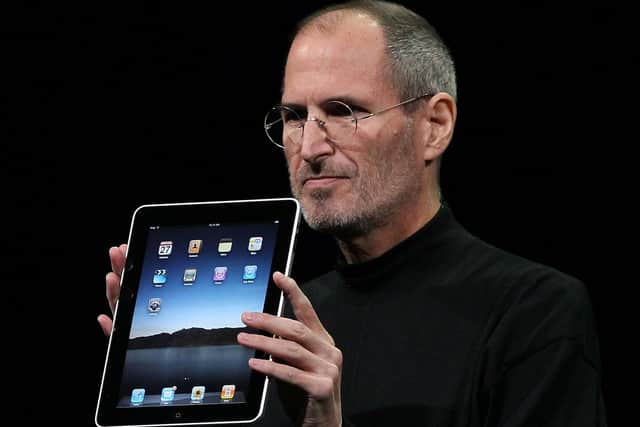Steve Jobs' quest for product perfection is a lesson for us all: Bird Lovegod
Actually, they shouldn’t. Steve was a seriously complex character, genius in some respects, dysfunctional in others. But some things he understood so well, so intuitively, that he could change the world.
The perfection of the product was absolute to him. The creator must love the product. It must be right. Rightness is not a subjective concept here, not an opinion. Rightness is fact, it is the state of perfection, and all else is wrong. It’s like truth, which is often singular, and all else, the infinite other possibilities, are false.
Advertisement
Hide AdAdvertisement
Hide AdIt’s like art, when approached by a Master. There is only one perfect way, all else is compromise.


Steve was a product perfectionist. It’s either perfect, or it’s wrong. Watch a bunch of adverts, if you can bring yourself to, and look at the products in the world. Are the adverts perfect? Are they brilliant? Or are they just ok?
The vast majority of adverts, are ok, very few are actually good and rarely is one brilliant. Why is that?
I’d suggest it’s nothing other than low standards coupled with low expectations, from the brands and from the ad agencies and creative teams. I think they look at all the other mediocre adverts, and make one just like them.
Advertisement
Hide AdAdvertisement
Hide AdThey look at the competitors’ ads, then make one a bit different. They don’t innovate, they formulate, based on a tired old recipe and the tired old ads they made last time. They’re risk averse. Afraid of being radical. It’s a recipe for average, for ok, for adequate. And that’s what they are. Good enough. But never great, never outstanding, never brilliant. A whole load of B grade for effort and results.


Apple would never stoop that low. It had to be perfect. Excellent. Ideal.
Steve understood certain things, and didn’t need PowerPoint presentations to do so. He made decisions because he knew them to be right and true, not because of ‘market research’ or other pseudo meaningful evidence.
One of the follies of our age is the reliance and respect for ‘data’ and ‘evidence’. It strays from folly to almost fraudulent at times, the way ‘evidence’ is collected and correlated by organisations funded by the beneficiaries of the predetermined outcomes.
Advertisement
Hide AdAdvertisement
Hide AdThe gambling industry funds research which becomes ‘evidence’ and then the Government laps it up like a good dog and makes it law. It’s intellectually dishonest, but everyone can say they’re just following the evidence that advertising gambling doesn’t lead to problem gambling, or some other obvious falsehood.
To make decisions based on instinct, and common sense, and understanding, one does not need to commission a white paper to cover the obvious truth. One just needs to have a respect for the truth. For reality. For the self evident. Instinct, an inner knowing. If you don’t, you’re in the wrong job.
There is a right way to do things, and infinite lesser ways to do the same thing. The right way, The Way, that’s what drove the perfectionism of Steve Jobs, the knowing that there was a perfect answer, an answer without compromise of aesthetic or design or functionality. There was a perfect way to make an iMac, an iPod, an iPhone. And there was, and is.
He was far from a perfect person, but he understood his vision in a particular and perfect way. And it meant so much to him that he would never compromise it. You don’t see that very often in business.
Bird Lovegod is MD of Ethical Much